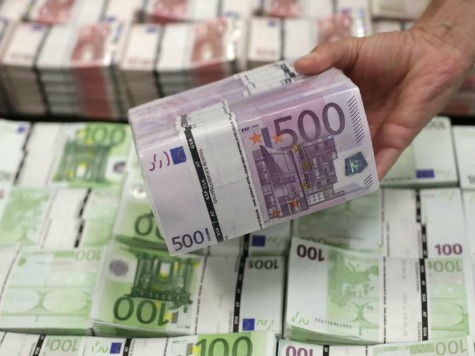Cardinal George Pell, whom Pope Francis hand-picked as head of the recently created Vatican “Secretariat for the Economy,” revealed Wednesday that the Vatican’s financial situation “is much healthier than it seemed.”
“In fact,” Pell said, “some hundreds of millions of euros were tucked away in particular accounts and did not appear on the balance sheet.”
“It is important to point out that the Vatican is not broke,” said the Cardinal.
Pell, an Australian known for his bluntness, was brought on by Francis last February for the reform of Vatican finances, and in particular, for an overhaul of the Vatican bank. What he found was a disjointed system to which no one had paid particular attention in years.
“Those in the Curia were following long-established patterns,” Pell said. “Just as kings had allowed their regional rulers, princes or governors an almost free hand, provided they balanced the books, so too did the popes with the curial cardinals.”
Despite the Vatican’s reputation for centralized decision-making, Pell’s comments reveal a much more scattered and independent economic system under little direct control from Rome.
“I once read that Pope Leo XIII sent an apostolic visitor to Ireland to report on the Catholic Church there,” Pell said. “On his return, the Holy Father’s first question was: ‘How did you find the Irish bishops?’ The visitor replied that he could not find any bishops, but only 25 popes.”
Pell’s remarks suggest that each bishop enjoys broad latitude in managing the affairs of his particular diocese and doesn’t expect much oversight. Pell noted, in fact, that popes still grant diocesan bishops an almost free hand, as long as they can stay in the black.
“So it was with the Vatican finances,” Pell said, adding:
Congregations, Councils and, especially, the Secretariat of State enjoyed and defended a healthy independence. Problems were kept “in house” (as was the custom in most institutions, secular and religious, until recently). Very few were tempted to tell the outside world what was happening, except when they needed extra help.
This lack of regulation and oversight meant that Vatican finances were allowed to “lurch along, disregarding modern accounting standards,” the Cardinal said.
Problems began for the Vatican Bank in 2009. Prior, the Vatican bank–or “IOR,” as it is known–acted like an “offshore bank” outside the European Union, and had no rules or protocols for combating money laundering. Italy’s Central Bank began pressuring local banks to cease dealings with the Vatican Bank, and in March 2012, J.P. Morgan Chase terminated its dealings with the Vatican bank. By early 2013, the Vatican bank was ready for a downfall.
This is where Cardinal Pell comes in. Together with a team of professionals, he has been sorting through the Vatican’s economic beehive, trying to bring order to practices that date back decades, if not centuries. One of his main tasks is to bring Vatican finances into line with current practices and to make them transparent.
The cardinal suggested that once the Holy See gets its own financial house in order, it may be time to focus on individual dioceses.
“The responsibilities of the Secretariat for the Economy are limited to the Holy See, Vatican City State and the almost 200 entities directly answerable to the Vatican,” he said. “But already some cardinals and bishops have wondered aloud whether the new set of financial procedures and chart of accounts, introduced in November this year in the Vatican, might be sent to bishops’ conferences for consideration and use. This is something for the future.”
Thomas D. Williams can be followed on Twitter @tdwilliamsrome

COMMENTS
Please let us know if you're having issues with commenting.